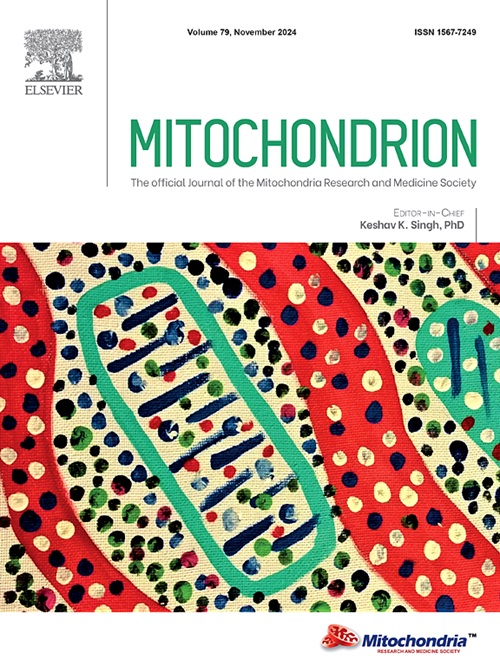Perceived association of mood and symptom severity in adults with mitochondrial diseases
IF 4.5
3区 生物学
Q2 CELL BIOLOGY
引用次数: 0
Abstract
Individuals with genetic mitochondrial diseases suffer from multisystem symptoms that vary in severity and over time, but the factors influencing disease manifestations are poorly understood. Based upon i) patient and family reports that stressful life events trigger or exacerbate symptoms, ii) biologically plausible pathways whereby psychological states and stress hormones influence mitochondrial energy transformation capacity, and iii) epidemiological literature linking traumatic/stressful life events and multiple neurologic disorders, we hypothesized that mitochondrial disease symptom severity may in part vary with daily mood. To examine patients’ perception around potential psycho-biological mechanisms known to operate in other chronic illnesses, we administered the Stress, Health and Emotion Survey (SHES) to 70 adults with self-reported mitochondrial diseases. Participants rated how severe each of their symptom(s) was over the past year, separately for either ‘good’ (happy, calm) or ‘bad’ (stress, sad) emotional days. On average, patients reported that most symptoms were better on “good” emotional days (p < 0.0001) and worse on “bad” emotional days (p < 0.0001). Of the 29 symptoms assessed, 27 were associated with daily mood (p < 0.01). Some but not all symptoms were reported to be less or more severe on good and bad days, respectively, including fatigue, exercise intolerance, brain fog, and fine motor coordination (ps < 0.0001). These associative results suggest that on average individuals living with mitochondrial diseases perceive a connection between their mood and symptoms severity. These preliminary findings constitute an initial step towards developing more comprehensive models to understand the psychobiological factors that influence the course of mitochondrial diseases.
成人线粒体疾病患者情绪与症状严重程度的感知关联
患有遗传性线粒体疾病的个体患有多系统症状,其严重程度和时间不同,但影响疾病表现的因素知之甚少。基于i)患者和家属报告的应激性生活事件触发或加重症状,ii)心理状态和应激激素影响线粒体能量生产能力的生物学可信途径,以及iii)将创伤/应激性生活事件与多种神经系统疾病联系起来的流行病学文献,我们假设线粒体疾病症状的严重程度可能部分随日常情绪而变化。为了检查患者对已知在其他慢性疾病中起作用的潜在心理生物学机制的看法,我们对70名自我报告患有线粒体疾病的成年人进行了压力、健康和情绪调查(SHES)。参与者对过去一年中他们的症状的严重程度进行了评估,分别是“好”(快乐、平静)和“坏”(压力、悲伤)情绪的日子。平均而言,患者报告说,在情绪“良好”的日子里,大多数症状都有所好转
本文章由计算机程序翻译,如有差异,请以英文原文为准。
求助全文
约1分钟内获得全文
求助全文
来源期刊

Mitochondrion
生物-细胞生物学
CiteScore
9.40
自引率
4.50%
发文量
86
审稿时长
13.6 weeks
期刊介绍:
Mitochondrion is a definitive, high profile, peer-reviewed international research journal. The scope of Mitochondrion is broad, reporting on basic science of mitochondria from all organisms and from basic research to pathology and clinical aspects of mitochondrial diseases. The journal welcomes original contributions from investigators working in diverse sub-disciplines such as evolution, biophysics, biochemistry, molecular and cell biology, genetics, pharmacology, toxicology, forensic science, programmed cell death, aging, cancer and clinical features of mitochondrial diseases.
 求助内容:
求助内容: 应助结果提醒方式:
应助结果提醒方式:


